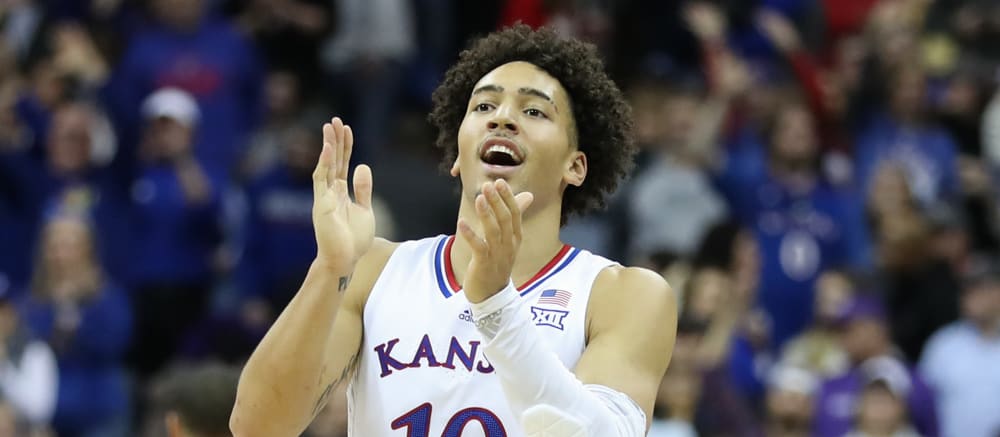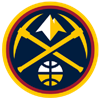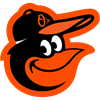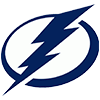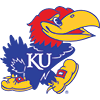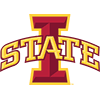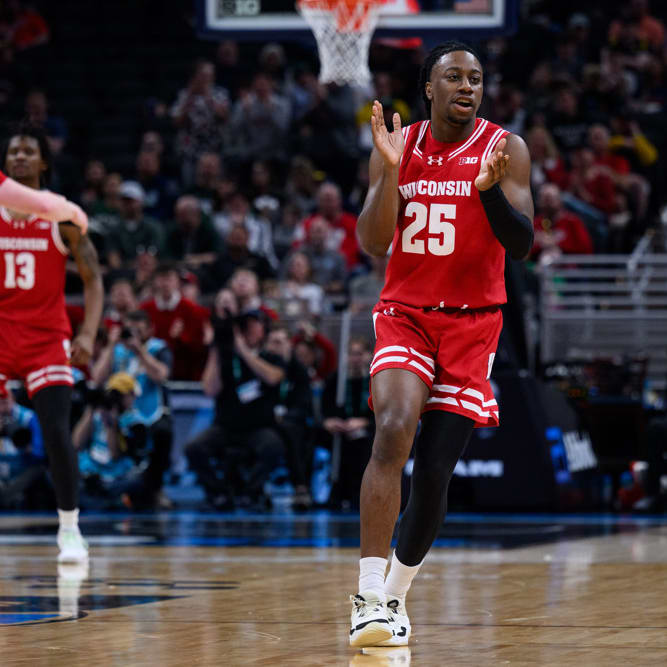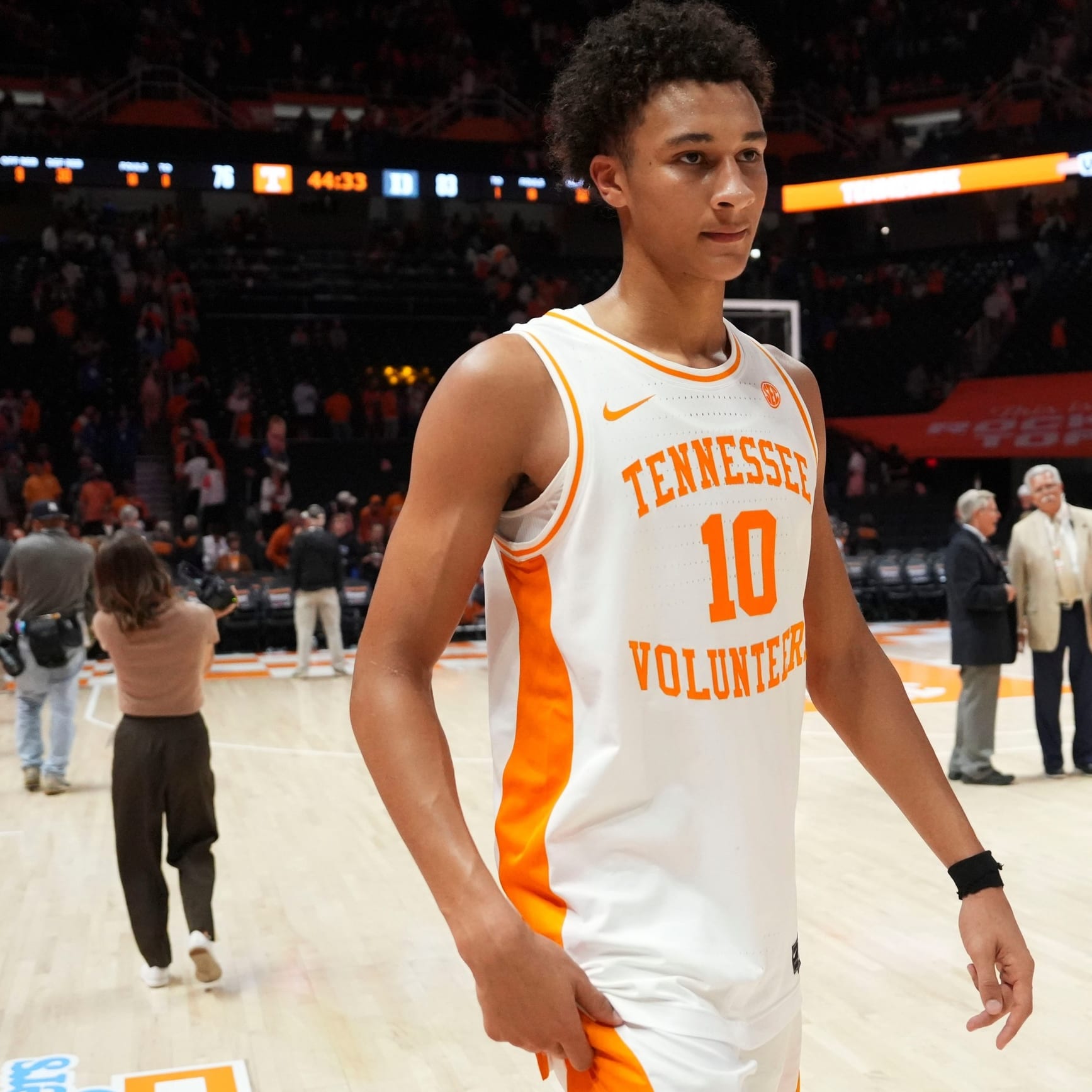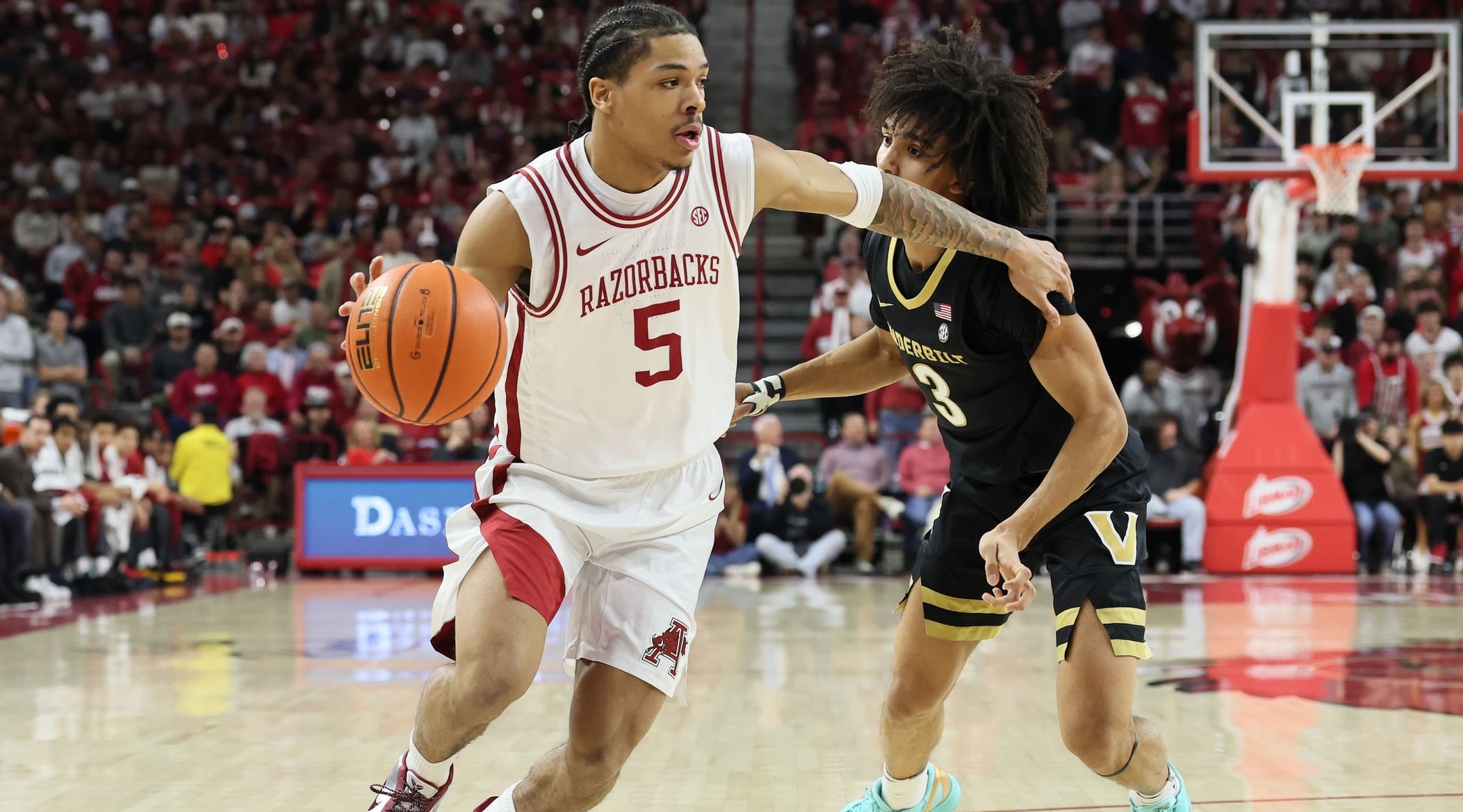March Madness is officially here. The field is finalized for the 2023 NCAA Men's College Basketball Tournament, and the RotoWire hoops team has everything you need to make the best decisions possible when filling out your brackets.
| School Name | Preview |
|---|---|
| Alabama | While off-court issues have clouded Alabama's season, the on-court product has been nothing less than stellar. SEC Player of the Year and future NBA lottery pick Brandon Miller (19.5 ppg, 8.2 rpg) leads the offense, but Ohio transfer Mark Sears (12.8 ppg) can take over games too. Both are effective from outside, with 40.7 and 35.3 percent 3-point shooting, respectively. The X-factor is last year's second-leading scorer Jahvon Quinerly (7.7 ppg, 3.8 apg), who is still returning to form after an ACL injury. Despite playing at the nation's fourth-fastest tempo, Alabama gets back on defense to rank third in efficiency (per KenPom). And thanks to 6-10 freshman Noah Clowney (10.2 ppg, 7.9 rpg, 1.1 bpg) and 7-0 sophomore Charles Bediako (6.0 ppg, 5.6 rpg, 1.7 bpg) protecting the paint, Alabama leads the nation in defending 2-point field-goals. Alabama is undoubtedly this year's heel, but few teams are as complete and talented as the South's No. 1 seed. |
| Arizona | The Pac-12 tournament champs, Arizona runs an up-tempo, inside-outside attack that ranks fourth in the nation in offensive efficiency (per KenPom). The Wildcats boast one of the nation's best frontcourt duos in 6-11 Azuolas Tubelis (19.8 ppg, 9.3 rpg) and 7-0 Oumar Ballo (14.2 ppg, 8.5 rpg, 1.3 bpg), both of whom help Arizona rank 13th in rebound rate while having no problem getting up and down the court -- the Wildcats are ninth in tempo, per KenPom. Arizona ranks 14th in perimeter shooting (38.2%), as Courtney Ramey (10.6 ppg, 3.6 apg) and point guard Kerr Kriisa (10.1 ppg, 5.2 apg) have each drilled 80-plus treys while shooting at least 37 percent. Defense is a bit lighter (41st in efficiency, per KenPom), as the Wildcats struggle to force turnovers (248th). But the resume is exceptional -- non-conference wins against Tennessee, Creighton, San Diego State and Indiana. Second-year coach Tommy Lloyd has the tools for a deep run. |
| Arizona State | Despite a rough finish to Pac-12 play and a No. 66 NET rating, coach Bobby Hurley and the Sun Devils are headed back to the NCAA Tournament. ASU lost NBA prospect Marcus Bagley after just two games, but rallied around a frontcourt anchored by 7-0 Nevada transfer Warren Washington (9.2 ppg, 6.9 rpg, 1.7 bpg). The offense is led by guards Desmond Cambridge (13.7 ppg, 3.5 rpg) and DJ Horne (12.1 ppg), but the Sun Devils rank outside the nation's top-300 in effective field-goal percentage and 3-point percentage (31.4). And point guard Frankie Collins (9.9 ppg, 4.4 apg) averaged just 5.8 points in his last eight games. Arizona State thrives on defense, ranking 28th in KenPom's efficiency ratings and limiting opponents to the sixth-lowest 2-point field-goal percentage in the nation. Five Quad 1 wins is worthy accomplishment, but ASU's ceiling looks capped -- if it makes it out of the 11-seed play-in game. |
| Arkansas | Arkansas started the year 11-1 but struggled in SEC play after losing offense-first big man Trevon Brazile (11.8 ppg) to a knee injury in December. Transfers came to the rescue, however, as the Mitchell brothers, 6-9 Makhi (7.1 ppg, 5.5 rpg, 1.4 bpg) and 6-10 Makhel (4.0 ppg, 3.6 rpg, 1.7 bpg) took charge of the post, while Wichita State transplant Ricky Council (15.9 ppg) led the offense. It also helps having three five-star freshman in the mix, including NBA prospect Nick Smith (14.0 ppg), who averaged 19.5 points in his last six games after returning from a knee injury in mid-February. The Razorbacks play stout defense, ranking 16th in efficiency (per KenPom), but offensively they struggle shooting from the outside (31.7%, 304th) and from the foul line (69%, 287th). Arkansas has just four Quad 1 wins, making it uncertain if it can string together multiple victories against high-level competition. |
| Auburn | Four of Auburn's five starters are upperclassmen, but the difference-maker is 6-10 sophomore Johni Broome (14.0 ppg, 8.4 rpg, 2.3 bpg), who is strong in the post. The Morehead State transfer has nine double-doubles and 11 games with at least three blocks. His primary running mate is standout point guard Wendell Green (13.8 ppg, 4.2 apg), but Auburn struggles from the perimeter (314th nationally), with 6-8 Jaylin Williams (11.1 ppg) and Allen Flanigan (10.1 ppg) the top shooters at 35.8 and 35.0 percent, respectively. Defensively, few can touch the Tigers on the perimeter, as they are fifth in the nation in 3-point percentage allowed (28.8) to rank 29th in efficiency (per KenPom). The formula hasn't yielded recent results for coach Bruce Pearl -- they've lost nine of their last 13. And while a veteran coach like Pearl can never be counted out, it's tough to put much stock in a team with a 3-10 Quad 1 record. |
| Baylor | Despite four losses in its last six games, including its conference tourney opener, Baylor is back in the NCAA Tournament thanks to strong resume built in the rugged Big 12 and wins against UCLA and Gonzaga. The Bears are second nationally in offensive efficiency, according to KenPom, led by five-star freshman Keyonte George (15.8 ppg, 4.2 rpg, 2.8 apg). A member of Baylor's 2021 national title team, senior guard Adam Flagler (15.5 ppg, 4.7 apg) is one of four Bears with at least 100 3-point attempts and one of two shooting at least 40 percent from deep. Junior LJ Cryer (14.5 ppg) is the other at a team-high 42.6 percent. Defense hasn't met the same standard, ranking 104th in efficiency (per KenPom) and 299th in defensive rebounding rate. But the early February return of 6-8 Jonathan Tchamwa Tchatchoua (5.7 ppg, 4.7 rpg) from a knee injury has helped. With an 11-10 Quad 1 record, Baylor could surprise in March. |
| Boise State | Despite falling two games shy of the Mountain West regular-season title and getting bounced in the conference tournament semifinals, Boise State's resume was strong enough for an NCAA Tournament bid. The Broncos are 27th in the NET rankings and 31st on KenPom, as they racked up nine Quad 2 wins (in addition to three in Quad 1). Four upperclassmen start, but the best player is 6-7 sophomore forward Tyson Degenhart (14.3 ppg, 5.4 rpg), who increased his scoring average by 4.4 points from his freshman year. Seniors Max Rice (13.9 ppg, 4.6 rpg) and Marcus Shaver (13.5 ppg, 6.1 rpg, 3.8 apg) man the backcourt. Rice shoots 41.5 percent from 3-point range, while 6-7 junior Chibuzo Agbo (11.5 ppg, 4.7 rpg) drills 40.8 percent. Defense and rebounding are strong suits, as the Broncos rank 14th in KenPom's defensive efficiency metric and 15th nationally in defensive rebounding rate. Boise State could give a high-major program fits. |
| Cal-Santa Barbara | UC Santa Barbara is NCAA Tournament bound for the second time in three seasons after winning the automatic bid from the Big West Conference. Experience has played a major role, with four seniors in the starting lineup. The one underclassman is leading scorer Ajay Mitchell (16.4 ppg, 5.1 apg), a 6-5 sophomore point guard. While Mitchell leads the way, a rock-solid frontcourt composed of 6-10 senior Miles Norris (14.1 ppg, 6.1 rpg) and 6-9 Cal transfer Andre Kelly (9.5 ppg, 6.5 rpg) have the Gauchos ranked 24th in the nation in 2-point field-goal shooting (54.8%). Norris also shoots 38.8 percent from 3-point range, while sophomore Cole Anderson (7.3 ppg) hits 42.5 percent. The defense doesn't have major holes, but the team's main weakness is a lack of quality competition. Santa Barbara played just one KenPom top-100 team this season (UC Irvine, 1-1) and didn't play a single Quad 1 opponent. |
| Charleston | Much to the relief of the Tournament's bubble teams, Charleston earned the automatic bid out of the Colonial Athletic Association. One of the nation's better mid-majors, the Cougars reached 18th in the AP poll in January and won a pair of Quad 2 games. Charleston is deep. Nine players average at least 15 minutes per game, and the team ranks 21st nationally in KenPom's bench minutes (reminiscent of last year's Cinderella, St. Peter's, perhaps?). That depth helps the Cougars rank 29th nationally in tempo (per KenPom). Five players average double figures, led by senior wing Dalton Bolon (12.3 ppg) and 6-10 sophomore center Ante Brzovic (11.6 ppg, 5.9 rpg), but senior point guard Ryan Larson (10.6 ppg) was the hero of the CAA championship with a season-high 23 points. A 6-7 sophomore, Ben Burnham (9.0 ppg) shoots 44.6 percent from 3-point range. Meanwhile, the Cougars defend the three well (19th in perimeter defense). Charleston has enough depth and experience to win a game, maybe two. |
| Colgate | Colgate is the definition of "live by the three, die by the three." And with only one loss in Patriot League play, en route to a third consecutive title, the Raiders are living well. Colgate leads the nation in 3-point percentage (40.9) and effective field-goal percentage (58.6). Five players have drained 33 or more threes, led by guard Oliver Lynch-Daniels (12.3 ppg), who has 77 treys on a nation-leading 50.3 percent shooting (min. 150 attempts). Close behind is 6-7 forward Ryan Moffat (10.5 ppg), a 45.7 percent 3-point shooter. Leading scorer Tucker Richardson (13.9 ppg, 5.3 rpg, 5.8 apg) is one of four senior starters, joined by freshman point guard Braeden Smith (11.7 ppg, 4.5 apg). The Raiders went 6-7 in non-conference play with a lone signature win against Syracuse, and 24 of 34 opponents were Quad 4. So, they'll need the three to fall in the first round in what will be their toughest matchup in months. |
| Connecticut | After a 14-0 start and ranked No. 1 in the country, UConn lost five of its next six games. But the Huskies recovered to win nine of their last 11 and advance to the Big East tourney semifinals. UConn enters the NCAA Tournament ranked eighth in the NET and fourth on KenPom, one of four teams ranked in the top 20 in KenPom's offensive (7th) and defensive (18th) efficiency metrics. The Huskies lead the nation in offensive rebounding rate, thanks in part to 6-9 junior Adama Sanogo (16.8 ppg, 7.3 rpg) and 7-2 freshman Donovan Clingan (7.1 ppg, 5.7 rpg), creating second-chance opportunities. Breakout sophomore Jordan Hawkins (16.1 ppg) is major scoring threat, especially from distance where he shoots 36.8 percent (on 239 attempts). Turnovers are sometimes an issue (234th), but coach Dan Hurley's team has the makings of a squad that can make some noise. |
| Creighton | Creighton might have been ready to push the panic button amid a six-game losing streak early in the year, but coach Greg McDermott's squad turned it around and finished 13th in KenPom's rankings after advancing to the Big East tourney semifinals. The Bluejays return four starters from last season, including point guard Ryan Nembhard (11.9 ppg, 4.9 apg), who missed last year's tournament. All five starters average double figures, led by 7-1 junior Ryan Kalkbrenner (15.4 ppg, 6.1 rpg) and sophomore guard Trey Alexander (13.6 ppg, 4.2 rpg), who shoots a team-high 44.0 percent from the perimeter. The Bluejays are 13th in the nation in defensive rebounding rate, led by South Dakota State transfer Baylor Scheierman (12.8 ppg, 8.4 rpg, 3.2 apg). Creighton lacks depth (349th in bench minutes, per KenPom) and could be derailed by an injury or foul trouble, but it surely has the talent to get to the second weekend. |
| Drake | A late-season bubble team, Drake took its NCAA hopes out of the committee's hands by winning the Missouri Valley Conference tournament as the No. 2 seed. The defensive-minded Bulldogs (44th in KenPom's efficiency rating) start four seniors but are led by 6-7 sophomore wing, and coach's son, Tucker DeVries (19.0 ppg, 5.6 rpg), who shoots 38.7 percent from 3-point range. Point guard Roman Penn (12.6 ppg, 5.4 apg, 4.6 rpg) adds 36.6 percent long-range shooting. Drake ranks third in the nation in defensive rebounding rate, led by 6-10 Darnell Brodie (8.8 ppg, 7.3 rpg) and senior Garrett Sturtz (9.5 ppg, 6.3 rpg). But the team's toughest opponent was Mississippi State (KenPom No. 49) in a neutral-court win, so the Bulldogs might not be battle-tested enough to make a run. |
| Duke | Duke had an up-and-down first season without legend Mike Krzyzewski, but coach Jon Scheyer has a young team clicking down the stretch. With the best recruiting class in the country, Duke enters the NCAA Tournament on a nine-game winning streak after capturing the ACC tourney title. In the paint are 7-0 Kyle Filipowski (15.4 ppg, 9.0 rpg), the most consistent of a trio of five-star freshman, and 7-1 Dereck Lively (5.4 ppg, 5.0 rpg, 2.3 bpg), the nation's top recruit who has settled into a starting role with 41 blocked shots in his last 14 games. Those twin towers give Duke plenty of second-chance points, as the Blue Devils rank eighth nationally in offensive rebounding rate. The glue is junior point guard Jeremy Roach (13.3 ppg, 3.1 apg), one of the few rotation players with Tournament experience. A 5-6 Quad 1 record raises eyebrows, but the Blue Devils are trending in the right direction at the best possible time. |
| Fairleigh-Dickinson | Fairleigh Dickinson lost to Merrimack in the Northeast Conference tournament final but was awarded the automatic NCAA bid because Merrimack is ineligible for the dance. The Knights are led by a pair of diminutive backcourt seniors in 5-8 Demetre Roberts (16.7 ppg, 4.3 apg) and 5-9 Grant Singleton (14.3 ppg, 1.9 spg). With no rotation player taller than 6-6, the Knights are shortest team in the nation in KenPom's average height metric. Perhaps no surprise then, FDU is atrocious on defense, ranking 361st of 363 teams in efficiency (per KenPom). Singleton is the leading 3-point shooter at 38.5 percent and 6-6 sophomore Ansley Almonor hits 37.6 percent, but the Knights aren't great from deep as a team, shooting 34.4 percent (156th). FDU figures to have a hard time getting out of the East Region 16-seed play-in game vs. Texas Southern. |
| Florida Atlantic | Florida Atlantic swept Conference USA, made multiple appearances in the AP Top-25, lost three games all year and ranks 13th in NET. Now the Owls are in the NCAA Tournament for the second time in program history and first since 2002. With five underclassmen starters and just one senior in the rotation, FAU is balanced with top-20 national rankings in offensive and defensive effective field-goal percentage. Leading scorers Johnell Davis (13.5 ppg, 5.2 rpg) and Alijah Martin (13.2 ppg, 5.4 rpg) are two of seven players with 30 or more 3-pointers. FAU ranks 30th in perimeter shooting (37.2%) with freshman Nicholas Boyd (9.1 ppg, 4.1 rpg) draining a team-high 41.4 percent. Defensively, 7-1 sophomore Vladislav Goldin (10.6 ppg, 6.4 rpg) protects the rim, as the Owls rank 11th in opponent 2-point field-goal percentage. With two Quad 1 wins, four in Quad 2 and no bad losses, FAU is one of the best mid-majors in this year's field. |
| Furman | After losing an NCAA bid last season on a half-court buzzer beater in overtime, Furman took care of business in the Southern Conference tourney this year to go dancing for the first time since 1980. The Paladins feature four double-digit scorers, ranking 32nd in offensive efficiency (per KenPom), as they can hit inside and outside. Furman is first in the nation in 2-point field-goal percentage (59.1) and has four players with at least 39 made 3-pointers. Senior Jalen Slawson (15.7 ppg, 7.1 rpg) shoots 39.4 percent from long range, while senior Mike Bothwell (18.0 ppg) has scored 20-plus points 12 times. The least experienced starter is sophomore point guard JP Pegues (12.0 ppg, 4.0 apg), who started slowly but averaged 20.2 points in his last five games. Furman's offense gives it Cinderella potential, but defense could prove its undoing, as the Paladins rank 183rd in defensive efficiency (according to KenPom). |
| Gonzaga | Is it possible Gonzaga is actually underrated? While three non-conference losses (all Quad 1) capped their rise in the polls, the Bulldogs are on a nine-game winning streak, including a 26-point thrashing of rival St. Mary's in the WCC tournament championship. Gonzaga ranks second nationally in effective field-goal percentage and is tops in offensive efficiency, per KenPom. Leading the way is a familiar face in 6-10 senior Drew Timme (20.9 ppg, 7.3 rpg), who shoots 62.4 percent from the field (9th). Three others average double figures, with 6-7 junior Julian Strawther (15.1 ppg) hitting 42.6 percent from long range. Gonzaga's defense doesn't always hold up (76th in efficiency, per KenPom), so the Bulldogs are susceptible to getting out-gunned by a team that gets hot from beyond the arc, as they allow 35.0 percent 3-point shooting (249th). However, they also have the firepower and next-level talent to beat anyone. |
| Grand Canyon | Grand Canyon finished four games out of first in the WAC but won the conference tournament as the fifth seed to earn an NCAA Tournament bid -- its second since moving to Division I in 2013. The Antelopes thrive on the perimeter, with six players recording 34 or more 3-pointers, led by sophomore guard Chance McMillian (10.7 ppg), who's made 58 at 44.6 percent. GCU shoots 38.3 percent from distance, 16th in the nation. Sophomore point guard and leading scorer Rayshon Harrison (17.7 ppg, 3.5 apg) hit five treys in a 31-point effort in the WAC title game blowout. The defense doesn't measure up, however, ranking 198th in KenPom's efficiency metric while ranking bottom 25 in the nation in opponent turnover rate. The Lopes notched a Quad 1 victory on the road against Sam Houston State, as well as a pair of Quad 2 wins, but also have seven Quad 3 losses. A first-round upset is a big ask. |
| Houston | After trips to the Final Four and Elite Eight the last two seasons, Houston enters the NCAA Tournament this season as a No. 1 seed for the first time since 1983. Coach Kelvin Sampson's Cougars slow the tempo (343rd, per KenPom), which helps them rank as the only team in the nation in the top 15 in both offensive and defensive efficiency. But leading scorer Marcus Sasser (17.1 ppg), who missed the previous postseason with a foot injury, is again a health question after suffering an injured groin in the American Athletic tournament. The frontcourt is anchored by 6-8 freshman Jarace Walker (11.1 ppg, 6.6 rpg, 1.0 bpg) and 6-7 junior J'Wan Roberts (10.4 ppg, 7.8 rpg, 1.3 bpg), who help Houston rank top 5 in both offensive rebounding rate and 2-point field-goal defense. Houston is as consistent and reliable as any team in the tournament -- as long as Sasser is healthy. |
| Howard | After an electrifying late-game comeback in the MEAC title game, Howard is in the NCAA Tournament for the first time since 1992 and third time in program history. The Bison won the conference regular-season title as well but are without a win in Quads 1 or 2. Three-point shooting is the primary catalyst, as Howard ranks 31st in the nation from the perimeter (37.2%). Three players shoot at least 38 percent from 3-point range with at least 50 treys, including leading scorer and point guard Elijah Hawkins (13.0 ppg, 5.9 apg), who shoots 47.3 percent from long range. The 5-11 sophomore also averages 3.9 turnovers per game, contributing to one of the highest team turnover rates in the nation (356th). With little reason to expect that improves against better defenses, the Bison seem unlikely upset candidates, barring a 3-point shooting barrage. |
| Illinois | Despite finishing seventh in what was a down year for the Big Ten, Illinois is back in the Tournament for the third consecutive season. Coach Brad Underwood's squad lost post anchor Kofi Cockburn to the pro ranks, but the paint defense has held up. The Illini are seventh in the nation in block rate and 16th in 2-point field-goal defense to rank 32nd in defensive efficiency, according to KenPom. A 6-10 junior, center Coleman Hawkins (9.9 ppg, 6.3 rpg, 1.2 bpg) is a big reason why, but the real difference-makers are 6-6 Texas transfer Terrence Shannon (17.1 ppg, 4.7 rpg, 1.3 spg) and 6-9 Baylor transfer Matthew Mayer (12.8 ppg, 5.5 rpg, 1.3 bpg). Outside shooting is a struggle, however, as Illinois converts just 30.9 percent from 3-point range (331st), with Mayer the team leader at just 33.8 percent. That glaring hole could make it difficult for Illinois to survive the first weekend. |
| Indiana | The Hoosiers finished second in the Big Ten regular season and reached the semifinals of the conference tournament, which is impressive given last year's second-leading scorer, point guard Xavier Johnson, suffered a season-ending foot injury in December. Taking a glass-half-full approach, that allowed 6-6 freshman Jalen Hood-Schifino (13.5 ppg, 4.1 rpg, 3.7 apg) to shine as the primary ball-handler and backcourt anchor. The star, of course, is 6-9 senior Trayce Jackson-Davis (20.8 ppg, 10.9 rpg, 2.7 bpg), one of three players in the Tournament averaging a double-double. The Hoosiers don't force many turnovers (297th in defensive turnover rate), but they are big (21st in average height, Per KenPom) and protect the paint with a top-15 block rate. Three-point shooting is also a strength (34th) with three players who hit at least 39.5 percent. Indiana has five Quad 1 and six Quad 2 victories, with no bad losses, and Jackson-Davis is capable of putting the team on his back for a deep run. |
| Iona | After winning both the MAAC regular season and conference tournament, coach Rick Pitino has Iona in the NCAA Tournament for the sixth time in the last eight seasons. Three players average at least 15 points, led by sophomore shooting guard Walter Clayton Jr. (16.9 ppg), who hits 42.9 percent from deep. The Gaels' strength, though, is defense. Iona ranks ninth in the nation in perimeter defense, with opponents shooting 29.2 percent. The interior holds its own as well, as 6-9 Nelly Junior Joseph (15.1 ppg, 9.4 rpg, 1.5 bpg) helps Iona rank fourth nationally in blocks per game with 5.5. The Gaels, though, haven't really been tested against high-caliber competition, with nearly two-thirds of their games coming in Quad 4 and no wins in Quads 1 or 2. Pitino has reportedly drawn interest from major programs to coach elsewhere next year, and he'd surely love to give the Gaels their first NCAA Tournament win since 1980 as a parting gift. |
| Iowa | Iowa lost last year's leading scorer Keegan Murray to the NBA, but his brother Kris (20.4 ppg, 7.9 rpg) has taken up the mantle to lead a potent offense that ranks third nationally in KenPom's efficiency metric. The defense, though, has lagged far behind. Iowa ranks outside the top 290 in both 2-point and 3-point defense, and with the 66th-fastest tempo (per KenPom), the Hawkeyes finds themselves in plenty of shootouts. A deep backcourt rotation led by 6-4 junior Tony Perkins (12.5 ppg, 4.1 rpg, 2.8 apg) protects the basketball at least, as Iowa boast the eighth-lowest offensive turnover rate in the nation. The potential of a red-hot shooting day for coach Fran McCaffery's squad means Iowa can beat just about anyone, but this style of play usually isn't conducive to an extended run. |
| Iowa State | Despite sputtering at the end of Big 12 play and finishing 9-9 in the conference, Iowa State earned 10 Quad 1 wins, including impressive victories over Baylor (three times), Kansas, Texas, TCU and Kansas State, and vs. Villanova and North Carolina in non-conference play. The offense is led by two 6-4 senior guards in Jaren Holmes (13.4 ppg) and Gabe Kalscheur (12.9 ppg), but the Cyclones took a major hit in March when sharpshooter Caleb Grill (9.5 ppg), who cashed 53 treys at a team-high 36.8 percent shooting, was dismissed from the team. The resulting lack of depth might be a problem, but Iowa State's resume was built on strong defensive play. The Cyclones rank eighth nationally in defensive efficiency, per KenPom, as they force the nation's second-highest turnover rate. They struggle from the foul line (316th), which could make closing games an issue, but the Cyclones have multiple-win potential. |
| Kansas | Kansas won yet another Big 12 regular-season title with 17 Quad 1 wins -- most in the country by a significant margin. The Jayhawks lost key pieces from last year's national championship team, but leading the offense is All-American candidate Jalen Wilson (20.1 ppg, 8.4 rpg), who scored in double figures in all but two games this season. Kansas added Texas Tech transfer Kevin McCullar (10.7 ppg, 7.1 rpg), who is dealing with a back injury but is valuable when healthy, and 6-8 freshman sharpshooter Gradey Dick (14.1 ppg), who has cashed 77 treys at 39.9 percent. The defense ranks seventh in efficiency (per KenPom). But if there is a weakness, it's on the glass. With David McCormack no longer around to anchor the post, the Jayhawks rank outside the top 170 in both offensive and defensive rebounding rates. Still, a balanced and talented attack makes it tough to rule out Kansas as a repeat title winner. |
| Kansas State | First-year head coach Jerome Tang has led Kansas State to a remarkable turnaround, but the best story is undoubtedly fifth-year senior Keyontae Johnson (17.7 ppg, 7.0 rpg). Johnson had the makings of an NBA prospect at Florida but collapsed on the court four games into the 2020-21 season due to a heart condition. After nearly two years awaiting clearance, he transferred to KSU, where he's excelled. The 6-6 forward shoots 41.9 percent from 3-point range and has scored in double figures in all but one game. Point guard Markquis Nowell (16.8 ppg, 7.6 apg) is third in the nation in assists and has made 75 treys. The driving factor, though, is a top-20 defense (per KenPom) that dominates the perimeter -- 16th in the nation in 3-point field-goal percentage allowed. The balanced attack led to nine Quad 1 wins, as the Wildcats have shown they can beat anyone in the country. |
| Kennesaw State | Kennesaw State won one game in Amir Abdur-Rahim's first season as head coach, but four years later he has the Owls dancing for the first time in school history. The Atlantic Sun regular-season and tournament champs, Kennesaw State is led by guard Chris Youngblood (14.7 ppg, 4.8 rpg), who shoots 41.1 percent from beyond the arc. The 6-4 junior is one of five Owls with at least 33 made 3-pointers as the team ranks 53rd nationally from long range (36.8%). Senior point guard Terrell Burden (13.5 ppg, 4.2 apg) can take over games, scoring in double figures in 19 of his last 20 contests. Kennesaw State challenged itself in non-conference play but did not emerge with a signature win, losing to Florida, VCU, San Diego State and Indiana -- all on the road. But the Owls finished the season on a 16-2 run, including two Quad 2 wins against Liberty, the latter of which earned the automatic bid. |
| Kent State | Kent State is a sneaky mid-major that punched its NCAA Tournament ticket by beating regular-season champion Toledo for the MAC tournament title. Perhaps most intriguing is how the Golden Flashes fared against tournament-caliber competition, just barely losing to Houston (five points), Gonzaga (seven points) and Charleston (two points) -- all on the road. The offense hinges on fifth-year senior Sincere Carry (17.6 ppg, 4.9 apg), who put up 26 points in the bid-clinching game and has three 30-plus performances this year. The real strength lies on defense, however, as the Golden Flashes boast a top-30 opponent 3-point percentage (30.9) and top-20 opponent turnover rate. Four players average at least one steal per game, with senior guard Malique Jacobs (12.8 ppg, 5.0 rpg, 2.7 spg) ranking fourth in the nation in steals. An experienced star in Carry and tough defense could do the trick for Kent State to get its first NCAA Tournament win since 2002. |
| Kentucky | Kentucky wasn't a lock to make the NCAA Tournament this year, especially after a dismal home loss to South Carolina in January. But Coach John Calipari rallied his squad and secured a tourney bid with room to spare. The Wildcats rank 14th in offensive efficiency (per KenPom), headlined by 6-9 Oscar Tshiebwe (16.5 ppg, 13.1 rpg), who leads the nation in rebounding and is one of three players in the Tournament averaging a double-double. Illinois State transfer Antonio Reeves (14.4 ppg) shoots 40.7 percent from 3-point range and 6-9 forward Jacob Toppin (12.5 ppg, 6.9 rpg) is much improved. Backcourt health is an issue, though, with senior Sahvir Wheeler (7.7 ppg, 5.6 apg) out since February and five-star freshman Cason Wallace (11.6 ppg, 4.2 apg) and senior CJ Fredrick (6.4 ppg) also dealing with injuries. Still, Kentucky's raw talent always makes it threat, and the Wildcats should be motivated after last year's first-round loss to 15-seed St. Peter's. |
| Louisiana | After winning the Sun Belt Conference tourney as the No. 2 seed, Louisiana is dancing for the first time since 2014 and in search of its first NCAA Tournament win since 1992. The Ragin' Cajuns rank 57th in offensive efficiency (per KenPom), led by 6-11 junior Jordan Brown (19.4 ppg, 8.7 rpg, 1.2 bpg), who played his first two years at Nevada and Arizona and has double-doubles in five of his last six games. Louisiana drills it from long range (37.8%, 23rd nationally) with sophomore Kentrell Garnett (6.7 ppg) shooting 42.0 percent and senior Greg Williams Jr. (13.1 ppg) hitting 40.0 percent from beyond the arc. Louisiana has a Quad 2 win against Southern Miss but is 0-2 in Quad 1 and has a loss each in Quads 3 and 4. Getting out of the first round could be a tall task for the Ragin' Cajuns. |
| Marquette | Predicted to finish ninth in the Big East this season, Marquette won the conference regular-season and tournament titles. Coach Shaka Smart revived the program with a balanced offensive attack that features four players in double figures and ranks ninth in efficiency (per KenPom). Tyler Kolek (13.3 ppg, 7.7 apg, 1.8 spg) dishes out more assists per game than all but one player in the nation, is capable of getting to the rack in late-game situations and shoots the three-ball well (39.4%). The Golden Eagles are deep with Big East Sixth Man of the Year David Joplin (9.3 ppg) hitting 39.8 percent from long range. Marquette's offense benefits from Smart's defensive philosophy, which greatly emphasizes tipped passes -- the Golden Eagles rank eighth nationally in steals per possession. That helps make up for woeful defensive rebounding (320th) and perimeter defense (257th). While there are flaws, Marquette should survive the opening weekend and get its first Tournament win since 2013. |
| Maryland | Largely thanks to a 16-1 home record, coach Kevin Willard has Maryland back in the Big Dance. The Terrapins are talented and experienced (10th in the nation, per KenPom), with four senior starters led by Charlotte transfer Jahmir Young (16.1 ppg, 4.7 rpg, 3.2 apg). The 6-1 guard had no problem adjusting to high-major level, scoring in double figures in all but four games. Julian Reese (11.2 ppg, 7.3 rpg, 1.2 bpg), a 6-9 sophomore who went from depth piece to starting center, averaged 11.2 points and 8.4 rebounds in his last five games, and two 6-8 seniors, Hakim Hart (11.5 ppg) and Donta Scott (11.5 ppg, 5.9 rpg), also are capable of taking over games. The Terps struggle from distance, though, ranking 222nd in 3-point shooting (33.0%). That, and an inability to win away from College Park (2-9 road record), make it difficult to put much stock in Maryland to make a run. |
| Memphis | Coach Penny Hardaway has brought Memphis back to national relevance, as the Tigers are in the NCAA Tournament for the second consecutive season after winning the American Conference tourney. SMU transfer Kendric Davis (22.1 ppg, 5.6 apg, 2.0 spg), a fifth-year point guard, routinely takes over games, ranking eighth in the nation in scoring, and 6-9 DeAndre Williams (17.8 ppg, 8.0 rpg) controls the paint. Senior Keonte Kennedy (9.2 ppg), who shoots 38.1 percent from long range, hopes to return for the Tournament after breaking his hand in mid-February. Fifth-year senior Alex Lomax (6.9 ppg, 2.4 spg) is a possible X-factor as team's best on-ball defender and looked healthy in the AAC tourney despite dealing with a groin injury. Memphis is up-tempo (17th per KenPom), experienced (11th) and deep (46th in bench minutes) and could surprise in the Tournament. |
| Miami | After an Elite Eight run last year, Miami returns to the NCAA Tournament thanks to winning a share of ACC regular-season title. The Hurricanes are an excellent shooting team, ranking 21st in 2-point percentage (54.9) and 44th in 3-point percentage (36.8) in addition to 17th in free-throw shooting (77.6%). The result is the nation's 12th-most efficient offense, according to KenPom. Leading scorer Isaiah Wong (16.2 ppg, 4.3 rpg, 3.4 apg), a 37.8 percent 3-point shooter, is complemented by high-profile transfers Nijel Pack (13.2 ppg), who shoots 39.4 percent from long range, and 6-7 Norchad Omier (13.6 ppg, 9.7 rpg). The X-factor is fifth-year wing Jordan Miller (15.3 ppg, 6.2 rpg), who improved his scoring average by five points. Defense lags far behind, though, with an opponent effective field-goal percentage that ranks 220th. The 'Canes also suffered a bad loss in Quads 3 and 4. Getting back to the second weekend could be a stretch. |
| Michigan State | It hasn't always been pretty for a team lacking major starpower, but Tom Izzo, not surprisingly, has the Spartans back in the NCAA Tournament. Michigan State has racked up six wins in both Quad 1 and Quad 2 behind a trio of returning scoring threats in Tyson Walker (14.6 ppg), Joey Hauser (14.2 ppg, 6.9 rpg) and A.J. Hoggard (12.5 ppg, 6.0 apg). A junior guard, Hoggard is the primary ball handler, while the versatile 6-9 Hauser leads the team on the boards and on the perimeter with 67 made 3-pointers on 45.6 percent shooting. Four others have cashed at least 21 treys, including Walker, who shoots 42.3 percent from long range. The result is the nation's fourth-highest team shooting percentage (39.5) that can quickly erase deficits. The Spartans don't force many turnovers (bottom-25 defensive turnover rate), nor clean the offensive glass (221st in offensive rebounding rate), but the balanced attack makes the Spartans a difficult defensive assignment. |
| Mississippi State | It's been a roller-coaster season for Mississippi State, which started 11-1 only to lose seven of its first eight SEC games. But coach Chris Jans' squad recovered to finish 8-10 in conference, just enough to get the Bulldogs on the right side of the bubble. Leading the turnaround is 6-11 senior Tolu Smith (15.8 ppg, 8.5 rpg), who has 10 double-doubles in his last 17 games. He's the only Bulldog in double figures, though Shakeel Moore (9.6 ppg, 3.0 rpg) is just off the pace. The problem is the Bulldogs can't buy a 3-pointer -- they rank last of 363 teams in the nation in 3-point shooting (26.6%). They make up for it on the defensive end with the nation's sixth-highest efficiency mark (per KenPom), as well as the seventh-highest steal rate. But the lack of shooting likely will be a problem -- even in the 11-seed play-in game. |
| Missouri | Missouri underwent a remarkable turnaround this year, going from 12-21 last year to the NCAA Tournament in coach Dennis Gates' first season. Gates formed a new-look backcourt with transfers D'Moi Hodge (14.8 ppg, 2.6 spg), DeAndre Gholston (10.7 ppg) and Nick Honor (8.0 ppg). Hodge and Honor each shoot higher than 39 percent from long distance. The star, however, is four-year program veteran Kobe Brown (15.8 ppg, 6.3 rpg). A 6-8 guard, Brown's career-high scoring average is fueled by 55.2 percent field-goal shooting, including 44.7 percent from 3-point range, both also career highs. Tigers are 10th nationally in offensive efficiency, per KenPom, but defense is another story. Missouri ranks 275th in opponent effective field-goal percentage and is last in the nation in defensive rebounding rate, due to a lack of size and depth down low. The Tigers better not have an off shooting night if they are to advance. |
| Montana State | Montana State is headed to the Big Dance for the second consecutive season under coach Danny Sprinkle. The Bobcats thrive on defense, ranking 70th in KenPom's defensive efficiency rating -- not bad for a Big Sky team. Down low, 6-9 Jubrile Belo (13.0 ppg, 6.1 rpg) defends the paint for a team that is 56th nationally in defensive rebounding rate. The struggles come on offense, as Montana State shoots just 32.0 percent from the perimeter, 288th in the nation. The Bobcats make up for it somewhat by getting to the foul line, as 24.9 percent of their points coming from the charity stripe, third most in the nation. The attack runs through 6-5 junior RaeQuan Battle (17.4 ppg), who has more than doubled last year's scoring average while taking on a starting role. The Bobcats were trounced by Arizona and Oregon, but they also have two Quad 2 wins, so they aren't entirely untested. |
| Nevada | While three consecutive losses, including a bad one to San Jose State in the opener of the Mountain West tournament, inched Nevada toward the bubble, rankings of 38 and 43 in the NET and KenPom, respectively, earned the Wolf Pack an at-large NCAA Tournament bid. Oregon State transfer Jarod Lucas (17.3 ppg) paces the offense, shooting 37.9 percent on 206 3-point attempts. Senior guard Kenan Blackshear (14.4 ppg, 4.6 apg) handles the ball while 7-0 Will Baker (13.5 ppg, 5.1 rpg) handles the paint. Nevada doesn't get a lot of second-chance points, ranking 332nd nationally in offensive rebounding rate, but it shoots 79.2 percent from the foul line, sixth in the nation, as the offense ranks 61st in efficiency overall (per KenPom). The Wolf Pack have four wins in Quads 1 and three in Quad 2, and it's now up to coach Steve Alford's squad to make it out of the 11-seed play-in game against Arizona State |
| North Carolina State | Rarely does a team with just one Quad 1 victory find its way to the Bid Dance, but the committee apparently decided not to fault North Carolina State for playing in a weak ACC. The Wolfpack has no bad losses, at least, and has plenty of offensive firepower that could spark them in the first round and beyond. It begins with sophomore point guard Terquavion Smith (17.5 ppg, 4.2 apg, 3.6 rpg), who helps N.C. State to the third-lowest turnover rate in the nation. The Wolfpack are undersized, especially after the December loss of 6-10 Dusan Mahorcic (knee), but 6-9 Winthrop transfer D.J. Burns (12.8 ppg, 4.8 rpg) has done a good job holding down the paint, and six players average at least four rebounds a game. The balanced approach helps make up for the size disadvantage, as the Wolfpack rank in the top third nationally in both offensive and defensive rebounding rates. |
| Northern Kentucky | The Horizon League tournament champs, Northern Kentucky is in the NCAA Tournament for the third time since 2017. The Norse allow opponents to shoot 36.7 percent from the perimeter (bottom 50 nationally) and rank 333rd in defensive rebounding rate, but, perhaps surprisingly, defense is a strength thanks to their ability to force turnovers. Northern Kentucky is 13th in the nation in opponent turnover rate and fourth in steals rate while forcing 9.1 steals per game. The Norse are also helped by a slow pace, ranking bottom 5 in the nation in tempo (per KenPom). The offense comes from junior shooting guard Marques Warrick (19.1 ppg), who hits 39.1 percent from the perimeter, and sophomore wing Sam Vinson (11.7 ppg). A 6-8 senior, center Chris Brandon (6.8 ppg, 9.8 rpg) handles the frontcourt. But with a combined 1-5 record in Quad 1 and 2 games, there's little to suggest the Norse can pull off the upset of No. 1 Houston. |
| Northwestern | A stranger to March Madness, Northwestern surprisingly finished second in the Big Ten to earn its second trip to the Big Dance in program history. Senior guards Boo Buie (17.1 ppg, 4.5 apg) and Chase Audige (13.8 ppg, 2.4 spg) are the primary offensive threats, though the team doesn't win with shooting -- the Wildcats rank 320th nationally in effective field-goal percentage and 279th in 3-point shooting (32.1%). Northwestern's success is thanks to its stout defense. The Wildcats are 12th in turnover rate and 15th in block rate, to rank 13th in KenPom's defensive efficiency metric. Defending the paint are 7-0 junior Matt Nicholson (6.0 ppg, 5.5 rpg, 1.3 bpg) and 6-9 senior Tydus Verhoeven (2.5 ppg, 2.7 rpg), but they aren't offensive threats. On the bright side, the team protects the ball (12th in turnover rate) and is solid from the free-throw line (54th), which puts the second Tournament win in program history within reach. |
| Oral Roberts | Armed with the nation's longest winning streak at 17 games, Oral Roberts is in the NCAA Tournament after winning the Summit League's regular-season and tournament titles. The Golden Eagles advanced to the second weekend in 2021, and this iteration has one major thing in common with that squad -- star guard Max Abmas (22.2 ppg, 4.4 rpg, 4.0 apg), a 37.7 percent 3-point shooter who is sixth in the nation in scoring. Abmas is complemented by a massive post presence in 7-5 senior Connor Vanover (12.9 ppg, 7.2 rpg, 3.3 bpg), who also played at California and Arkansas. Vanover is second in the nation in blocks and, surprisingly, has hit 45 three-pointers. Oral Roberts ranks 23rd in offensive efficiency (per KenPom) and does an exceptional job protecting the ball, posting the lowest turnover rate in the nation. Defense is a different story (106th in efficiency, per KenPom), but Oral Roberts still has the potential to win a shootout against most teams. |
| Penn State | Penn State caught fire in mid-February and rode it all the way to the Big Ten tournament final. Make no mistake -- the streak, in which the Nittany Lions won eight of their last 10, was sparked by electrifying offense, led by fifth-year senior and triple-double threat Jalen Pickett (18.1 ppg, 7.4 rpg, 6.8 apg). The threat can come from anywhere, however, as four players have at least 40 treys, including three who shoot at least 39 percent from deep. Senior guard Andrew Funk (12.2 ppg) has made 102 at team-high 41.3 percent, as Penn State ranks top 10 in the nation from the perimeter and top 20 in offensive efficiency (per KenPom). The Nittany Lions protect the ball (5th in turnover rate) but don't force any turnovers (bottom-5 defensive turnover rate). The biggest issue is rebounding, as the Nittany Lions rank 362nd of 363 teams in offensive rebound rate. Penn State likely will go as far as its perimeter game takes it. |
| Pittsburgh | The fifth year was the charm for coach Jeff Capel, who went from winning no more than six ACC games in any season to coming within one game of a conference title this year. The result is Pittsburgh's first trip to the Big Dance since 2016. The Panthers rank 24th in offensive efficiency (per KenPom) with two primary scorers in 6-4 senior guard Jamarius Burton (15.6 ppg, 4.8 rpg, 4.4 apg) and 6-7 junior forward Blake Hinson (15.6 ppg, 6.2 rpg). Hinson shoots 38.4 percent from 3-point range (on 237 attempts) while senior Greg Elliott (10.4 ppg) knocks down 42 percent from deep. Pitt took a big hit losing 6-9 junior John Hugley (14.8 ppg, 7.9 rpg in 2021-22) early, but 6-11 sophomore Fede Federiko (7.0 ppg, 5.6 rpg) stepped up in the paint. A down year for the ACC means Pitt only has four Quad 1 wins, but the Panthers have no glaring weaknesses as they enter the Midwest's 11-seed play-in game. |
| Princeton | After sharing the Ivy League regular-season title with Yale and then beating it in the conference championship game, Princeton is headed to the NCAA Tournament for the first time since 2017. The Tigers run through 6-8 senior forward Tosan Evbuomwan (15.0 ppg, 6.2 rpg, 4.7 apg), who leads a three-forward starting five. Freshman forward Caden Pierce (8.2 ppg, 7.1 rpg) is coming off three consecutive double-doubles, while 6-9 senior forward Keeshawn Kellman (8.0 ppg, 4.6 rpg) has gone cold, averaging 4.4 points in his last seven games. The Tigers rank ninth in defensive rebounding rate, which helps make up for an inability to cause turnovers; Princeton is bottom 15 nationally in opponent turnover rate. The resume leaves a lot to be desired, with just two Quad 2 victories and two Quad 4 losses as well. It will be tough for the Tigers to come away with their first NCAA Tournament win since 1998. |
| Providence | A lack of signature non-conference wins and losing four of its last five pushed Providence toward the bubble, but the Friars punched their ticket to the Big Dance on the strength of four Quad 1 and three Quad 2 wins in an above-average Big East. An afterthought at Kentucky last year, 6-7 sophomore Bryce Hopkins (16.1 ppg, 8.5 rpg) had a breakout season, but balance is key -- five players average double figures as Providence ranks 17th in offensive efficiency (per KenPom). The Friars also thrive off second-chance points, ranking 16th in offensive rebounding rate, with 6-8 senior Ed Croswell (13.2 ppg, 7.6 rpg) helping Hopkins in the frontcourt. Senior Noah Locke (11.1 ppg) is the best 3-point shooter at 38.9 percent. The big question is whether the Friars are sound enough defensively for a run, as they rank 107th in KenPom's defensive efficiency metric. |
| Purdue | After starting 22-1, Purdue sputtered a bit in February but figured it out to win the Big Ten tournament title and earn the No. 1 seed in the East. The story begins with National Player of the Year frontrunner Zach Edey (22.3 ppg, 12.8 rpg, 2.1 bpg), a 7-4 behemoth who is one of three players in the Tournament averaging a double-double. Edey is a massive (literally) reason why Purdue ranks No. 3 and No. 14 in offensive and defensive rebounding rates, respectively. However, the backcourt is inexperienced, with freshmen starters Braden Smith (9.8 ppg, 4.3 apg) and Fletcher Loyer (10.9 ppg). Smith shoots 38.9 percent from long distance, but Purdue ranks 225th from the perimeter (32.6%), which could make it tough to erase deficits. Although Edey will have to avoid foul trouble for an extended run, he has yet to foul out this season, due at least in part to veteran coach Matt Painter managing his use well. The pieces are here, but so are the flaws. |
| San Diego State | After taking home the Mountain West regular-season and tournament titles, San Diego State is dancing for the third consecutive year, looking for its first tournament victory since 2015. The Aztecs' No. 5 seed in the South is their highest since 2014 thanks to a resume that includes five wins in Quad 1, six in Quad 2 and no bad losses. SDSU ranks 10th in defensive efficiency (per KenPom) and defends the perimeter especially well, allowing opponents to shoot just 29.2 percent on 3-pointers (8th). Three players shoot at least 37 percent from deep, led by Adam Seiko (6.5 ppg) at 46.8 percent, but SDSU is outside the top 200 in effective field-goal percentage. Senior guards Matt Bradley (12.9 ppg) and Darrion Trammell (9.5 ppg) provide just enough scoring, with 6-10 Nathan Mensah (6.2 ppg, 5.8 rpg, 1.5 bpg) patrolling the paint. Depth, experience and defense give the Aztecs a reasonable chance to make it to the second weekend. |
| SE Missouri State | Southeast Missouri State lost five of its last seven regular-season games to finish fifth in the Ohio Valley Conference but rallied in the OVC tournament to earn the automatic NCAA bid. The Redhawks' resume is underwhelming, though. They are without a win in Quads 1 or 2 (their best win was the season opener at South Florida) and rank lower than 240 in both offensive and defensive efficiency, per KenPom. The Redhawks play fast (7th in adjusted tempo), led by point guard Phillip Russell (18.2 ppg, 5.0 apg), who shoots 36.2 percent from long range. SEMO lost leading rebounder Kobe Clark (8.7 rpg) to a knee injury in January, but seniors Chris Harris (15.4 ppg, 4.7 rpg) and Israel Barnes (10.3 ppg, 3.1 rpg) have picked up the slack. The Redhawks could have their hands full in the 16-seed play-in game vs. Texas A&M-Corpus Christi. |
| St. Mary's | St. Mary's is in the NCAA Tournament for the ninth time under coach Randy Bennett, and this could be his best team yet. Despite losing two of their last three games to Gonzaga, the Gaels are a program-high 11th in the KenPom rankings. St. Mary's plays at a snail's pace -- 359th in the nation in tempo (per KenPom) -- which limits possessions and helps hold opponents to 60.1 points per game, fifth fewest in the nation. St. Mary's ranks ninth in defensive efficiency (per KenPom), and the offense isn't far behind at 40th. Four upperclassmen starters are joined by freshman Aidan Mahaney (14.5 ppg), a 41.2 percent 3-point shooter. He's only bested by senior Alex Ducas (12.5 ppg, 4.2 rpg), who has 84 treys at 41.8 percent. Senior Logan Johnson (14.7 ppg, 4.8 rpg, 3.7 apg) is a do-it-all point guard. The Gaels aren't deep and shoot only 69.3 percent from the foul line, but they're gunning for the second weekend, at least. |
| TCU | TCU hit a cold streak in early February when leading scorer Mike Miles (17.3 ppg) missed five games with a knee injury, but the junior guard is back, and so are the Horned Frogs. With eight Quad 1 victories and non-conference wins against Iowa and Providence, TCU is dancing for the second consecutive year. Beyond Miles, the scoring comes from senior point guard Damion Baugh (12.6 ppg, 5.8 apg) and 6-7 forward Emanuel Miller (12.4 ppg, 6.6 rpg). The talent is here, but the perimeter shooting is not. TCU is 339th in the nation in 3-point shooting at a brutal 30.6 percent. On the other side of the court, the Horned Frogs boast stout perimeter defense (20th), as they also rank 20th in defensive efficiency, per KenPom. The 6-11 Eddie Lampkin (6.3 ppg, 5.9 rpg) left the team for personal reasons during the conference tournament, which could be an issue for a defense that ranks 287th in rebounding rate. |
| Tennessee | Tennessee enters the NCAA Tournament with seven Quad 1 victories and no bad losses -- a resume good for a No. 4 ranking in the NET and No. 6 on KenPom. A 10-man rotation helps Tennessee play arguably the best defense in the country. The Volunteers lead the nation in perimeter defense (26.2% allowed on 3-pointers) and are third in opponent effective field-goal percentage (42.4), ranking No. 2 in KenPom's defensive efficiency rating. Offense is a little tougher. Senior leading scorer Santiago Vescovi (12.9 ppg, 4.6 rpg, 1.8 spg) shoots 36.6 percent from 3-point range, but the Vols otherwise struggle from the outside (32.9%, 228th). Double-digit scorer Zakai Zeigler (10.7 ppg) tore an ACL in February, and 6-6 senior Josiah-Jordan James (10.2 ppg, 4.7 rpg) is still searching for consistency after returning from an ankle injury in January. But experienced guards, a seasoned coach in Rick Barnes and stellar defense could be enough for a deep run. |
| Texas | Texas had the look of a title contender after starting 12-1, but adversity hit in early January when coach Chris Beard was dismissed for an off-field incident. The Longhorns were inconsistent in the rugged Big 12 but found their game in time to win the conference tournament with a 20-point blowout of against Kansas. Texas went 14-8 in Quad 1 games, with no losses in any other quadrant. Fifth-year senior Marcus Carr (15.9 ppg, 4.1 apg) mans the point for an offense that ranks 18th in efficiency (per KenPom), but the X-factor is the emergence of fellow fifth-year senior and New Mexico State transfer Sir'Jabari Rice (12.4 ppg), who shoots 34.4 percent on 3-pointers. The duo has combined for 124 treys, with Tyrese Hunter (10.2 ppg) chipping in 50. Defensive rebounding (226th) isn't strong, but that's about the only flaw for a battled-tested team ready to rally around interim coach Rodney Terry. |
| Texas A&M | Texas A&M started the year 6-5 with two Quad 4 losses but rallied to win 17 of its last 20 regular-season games to finish one win shy of Alabama for the SEC title before losing in the conference tourney final to the Tide. The scoring comes from a backcourt of sophomore Wade Taylor (16.6 ppg, 1.8 spg) and senior Tyrece Radford (13.3 ppg). But despite quality guard play, the Aggies shoot just 32.7 percent from the perimeter (250th nationally). They make up for it with second-chance points, ranking sixth in the nation in offensive rebounding rate. Texas A&M is also adept at getting whistles, attempting the second-most free throws per game (and making 75.7 percent, 43rd). The balanced Aggies rank 26th in offensive efficiency (per KenPom) and 35th in defensive efficiency. Beating both Tennessee and Alabama down the stretch turned heads, but A&M still could surprise in the Tournament. |
| Texas A&M-Corpus Christi | Texas A&M-Corpus Christi is dancing for the second consecutive season after winning the Southland Conference regular-season and tournament titles. The Islanders are an excellent shooting team, making 36.9 percent from 3-point range -- top 50 in the nation -- and 80.0 percent from the foul line, second highest nationally. Senior wing Trevian Tennyson (15.7 ppg) shoots 41.2 percent from deep (on 233 attempts) and 90.8 percent on free throws, both team highs. Defense is the issue. First, Southland Defensive Player of the Year Terrion Murdix (13.4 ppg, 5.4 apg, 2.3 spg) could miss the Tournament after a knee injury sidelined him in the conference tourney final. Second, the interior is especially vulnerable, despite the efforts of 6-5 forward Isaac Mushila (14.4 ppg, 9.7 rpg). The Islanders allow 54.1 percent shooting on 2-pointers (327th) and have the 10th-lowest block rate in the nation. They also have no wins in the top-2 quadrants and just one Quad 3 victory. But that might be enough to win the 16-seed play-in game. |
| Texas Southern | With losing records in both the regular season (14-20) and SWAC play (7-11), as well as a 285 KenPom ranking, it's not a stretch to call Texas Southern the weakest team in the 2023 NCAA Tournament. Still, a Cinderella run as the lowest-seeded team in the conference tourney earned the Tigers their second consecutive ticket to the Big Dance and sixth since 2014. At least Texas Southern challenged itself in non-conference play, though it went 0-4 in Quad 1 with one Quad 2 win (Arizona State). Offense is a struggle, as the Tigers rank 330th in KenPom's efficiency metric and rank 360th of 363 teams in perimeter shooting (28.7%). Four players average double figures, led by sophomore wing Davon Barnes (13.6 ppg). Senior point guard PJ Henry (12.7 ppg) is the best bet from outside at 35.1 percent. The Tigers might be underdogs to even to make it out of the 16-seed play-in game. |
| UCLA | UCLA cruised to the Pac-12 regular-season title (by four games) to earn the No. 2 seed in the West. Coach Mick Cronin's calling card is defense, and the Bruins again fit the bill. UCLA leads the nation in defensive efficiency, per KenPom, and is 11th in defensive turnover rate, creating plenty of offensive opportunities. Taking advantage is a trio of seniors in Jaime Jaquez (17.3 ppg, 8.1 rpg, 1.4 spg), Tyger Campbell (13.6 ppg, 4.7 apg, 1.2 spg) and David Singleton (9.1 ppg, 1.1 spg), who shoots 43.2 percent from 3-point range. UCLA, though, is without a key part of the defense, as 6-5 junior Jaylen Clark (13.0 ppg, 6.0 rpg, 2.6 spg) suffered a season-ending Achilles injury in the regular-season finale. If anyone can overcome such a loss, it's Cronin, but the Bruins will have a slightly different look than the one that earned eight Quad 1 victories and a spotless record vs. the other three quadrants. |
| UNC-Asheville | After going 18-1 down the stretch, UNC-Asheville is dancing for the fifth time in school history and first time since 2016. The Bulldogs begin and end with 6-11 senior center Drew Pember (21.2 ppg, 9.4 rpg), who has 15 double-doubles this season. The Tennessee transfer shoots 37.3 percent from long range as the Bulldogs rank eighth nationally in 3-point shooting (39.0%). Senior wing Tajion Jones (15.0 ppg, 5.2 rpg) is third in the nation at 45.6 percent from long range, making 98 treys. Senior guard Fletcher Abee adds 42.1 percent shooting from downtown. UNC-Asheville is also tough defensively on the perimeter (24th in 3-point percentage). The Bulldogs earned a Quad 1 win against UCF in the season opener but were throttled by Arkansas and Dayton in non-conference play. Seeded 16 in the Midwest, UNC-Asheville will have to get hot from beyond the arc to knock off No. 2 UCLA. |
| USC | USC opened the year with a Quad 4 home loss to Florida Gulf Coast but rebounded to win 11 of its next 13 and finish 14-6 in the Pac-12. The Trojans' bread and butter is senior guards Boogie Ellis (18.0 ppg) and Drew Peterson (14.0 ppg, 6.2 rpg, 4.4 apg), both of whom drain from outside. Ellis shoots a team-high 39.2 percent from 3-point range, while Peterson is next at 36.2 percent. The rest of the rotation is underclassmen aside from 6-11 junior Joshua Morgan (6.7 ppg, 5.2 rpg), who has manned a short-handed center spot that recently got even thinner due to a back injury to four-star freshman Vince Iwuchukwu. Predictably, rebounding is a major weakness (328th in defensive rebounding rate), but the Trojans are third in the nation at defending two-point baskets. Defense must hold up if USC is to avoid its second consecutive one-and-done tourney appearance. |
| Utah State | Utah State was runner-up to San Diego State in both the Mountain West regular season and tournament, but that shouldn't take away from top-20 rankings in both the NET and KenPom. The Aggies have a pair of Quad 1 wins and nine wins in Quad 2, solidifying their at-large resume. With an all-upperclassmen rotation, Utah State ranks 11th nationally in 3-point shooting (38.5%), led by junior guard Steven Ashworth (16.3 ppg, 4.5 apg), who is fifth in the nation at 44.8 percent. Three others shoot at least 37 percent on 3-pointers. Defending the 3-point line is a different matter -- Utah State ranks 211th in opponent 3-point shooting. Depth is also an issue, as the Aggies are 335th in bench minutes (per KenPom), with senior guard Rylan Jones out since January. Utah State has a pair of Quad 4 losses, but this mid-major can keep up with any team in a shootout. |
| VCU | VCU won the Atlantic 10 regular season by three games and then took the conference tournament to secure its NCAA Tournament ticket. The catalyst is junior point guard Adrian Baldwin (12.7 ppg, 5.9 apg, 2.2 spg), who missed time with a wrist injury early this year. At 6-8, fifth-year senior and Michigan transfer Brandon Johns (11.8 ppg, 5.3 rpg) gives the Rams a capable scorer and defender at both frontcourt positions. Jayden Nunn (9.3 ppg) and David Shriver (6.5 ppg) each shoot higher than 40 percent from 3-point range, though the team hits just 34.7 percent. The rotation runs nine players deep, with eight averaging at least 15 minutes. That keeps the Rams fresh on defense, as they rank 17th in efficiency (per KenPom) and sixth in turnover rate. VCU played only two Quad 1 games (winning one), with two Quad 4 losses, which wouldn't seem to bode well for March. |
| Vermont | Vermont is in the NCAA Tournament for the second consecutive season after winning the America East regular-season and tournament titles. The Catamounts' rotation runs nine deep, with only one player, 6-5 senior guard Robin Duncan (7.8 ppg, 7.3 rpg, 4.4 apg), averaging more than 30 minutes per game. Leading scorer senior Dylan Penn (13.5 ppg) splits ball-handling duties with Aaron Deloney (11.6 ppg), who shoots 40.6 percent from the 3-point line. The duo takes care of the ball, as Vermont has the nation's ninth-lowest turnover rate. The 6-8 Matt Veretto (8.8 ppg) adds 41.7 percent shooting from the perimeter. Down low, there's an interesting rebounding contrast, as the Catamounts are sixth nationally in defensive rebounding rate but rank 358th on the offensive glass. Vermont has one win in seven combined Quad 1/2 games, which figures to make it tough for the Catamounts to get their first Tournament win since 2005. |
| Virginia | Virginia's formula of slowing tempo and avoiding turnovers has it back in the NCAA Tournament after missing last season for the first time since 2013. The Cavaliers play at the fourth-slowest tempo in the nation (per KenPom) and boast the sixth-lowest turnover rate. Upperclassmen guards Armaan Franklin (12.5 ppg), Kihei Clark (10.9 ppg, 5.4 apg) and Reece Beekman (9.4 ppg, 5.3 apg) each shoot at least 35.5 percent on 3-pointers, in addition to protecting the ball. A 6-6 senior, Jayden Gardner (12.1 ppg, 5.8 rpg) saw his scoring dip but will have to step up in March, as Virginia lost an important frontcourt piece in 6-8 Ben Vander Plas (7.4 ppg, 4.6 rpg) to a fractured hand during Virginia's run to the ACC tournament final. The foul line is also a concern as the Cavaliers rank 250th in free-throw percentage. Virginia is built for consistency in the postseason, but its frontcourt depth will be tested. |
| West Virginia | Playing in the Big 12 in what was nation's toughest conference allowed West Virginia to rack up six wins in Quads 1 and 2, and with no bad losses, the resume was strong enough for an NCAA Tournament bid. Known for full-court defense under coach Bob Huggins, offense is the strength this year, as the Mountaineers rank 15th in the nation in efficiency (per KenPom). Fifth-year senior Erik Stevenson (15.5 ppg), who is with his fourth program, has 77 made 3-pointers on 38.1 percent shooting. A 6-9 senior, Texas transfer Tre Mitchell (11.6 ppg, 5.5 rpg) hits 37.9 percent from long range. Mitchell teams with 6-10 Jimmy Bell Jr. (4.9 ppg, 5.2 rpg) on the boards, but, thanks in part to their deep frontcourt rotation, the Mountaineers rank 224th in defensive rebounding rate. West Virginia is talented enough to survive the first round, but it might not have enough firepower with Alabama likely waiting in Round 2. |
| Xavier | Coach Sean Miller returned to Xavier this season and, after a run to the Big East tournament final, has the Muskateers back where he left them in 2009 -- in the NCAA Tournament. Xavier ranks eighth nationally in offensive efficiency, per KenPom, largely thanks to 39.5 percent perimeter shooting (3rd in nation). UTEP transfer Souley Boum (16.5 ppg, 4.3 rpg, 4.4 apg) excels at the point, shooting 42.5 percent from 3-point range. The Musketeers can also beat you with versatile 6-6 junior Colby Jones (15.2 ppg, 5.4 rpg, 4.3 apg) and senior guard Adam Kunkel (10.5 ppg), each of whom hits at least 38 percent from deep. While Xavier lost 6-9 Zach Freemantle (15.2 ppg, 8.1 rpg) to a midseason injury, 7-0 Jack Nunge (14.1 ppg, 7.8 rpg) stepped up with 10 double-doubles. Xavier struggles to defend the 3-point line (282nd), but that's the only major weakness for a battle-tested squad (8-6 vs. Quad 1) that could make a deep run. |


